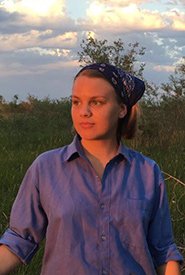The poetry of nature
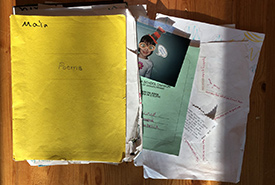
(Photo by Maia Herriot)
I am an English major raised by two writers and former English majors. I spent this past summer writing blog posts as the communications intern for the Nature Conservancy of Canada’s (NCC’s) Saskatchewan Region. Writing is my thing. I have always seen creative writing as not just an art, but also as a tool for working through my thoughts, capturing a memory or a place, expressing and communicating.
The idea that reading and writing are daunting in any way confused me when I first heard it from my elementary school classmates. What shocked me more was that poetry — something I saw in everything, wrote in my fuzzy locked journal, read unassigned — was perhaps the most intimidating form of writing to my peers.
When someone describes a moving experience that they have had — whether funny, heartbreaking or beautiful — my mom always responds, “That’s your next poem.”
Related blog posts
Although my siblings and I make fun of my mom for how often she says it, her repeated words gave me the confidence to start writing poetry at a young age. As a child, I entered a poetry contest at the local high school and read a poem I had written about a dove in front of a cafeteria crowd. Now at age 21, I have moved on from writing limericks in my grade school journal to editing poems published in my university’s literary journal.
Even after studying “the greats” in university, I don’t see poetry as the pretentious art form it is sometimes accused of being. When I think of poetry, I think of freedom of expression and an almost magical ability to make tangible the otherwise abstract or fleeting. Magical, but accessible to anyone and everyone through language.
I think everyone can write poetry even if they think they can’t.
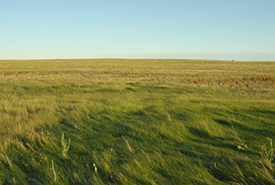
I believe that the best place to start with poetry is nature. (Photo by Mark Taylor)
I believe that the best place to start with poetry is nature. Nature makes us all poets. The vastness and the tiny worlds, the familiarity and the novelty of nature — we have all stood before nature and felt the poetry of that place or moment.
At the risk of scaring you off with literary theory, poetry that relates to nature in some way is called “ecopoetry.” Like nature, it means something different to all of us. According to Jonathan Skinner, founder and editor of the journal Ecopoetics, “For some readers, ecopoetics is the making and study of pastoral poetry, or poetry of wilderness and deep ecology. Or poetry that explores the human capacity for becoming animal, as well as humanity’s ethically challenged relation to other animals. For others, it is poetry that confronts disasters and environmental injustices, including the difficulties and opportunities of urban environments.”
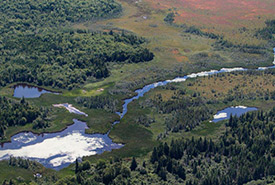
Nature makes us all poets. (Photo by Mike Dembeck)
For me, ecopoetry is a link to all the places I am not, in that moment. Splitting my time between summers home in Saskatchewan and school terms in New Brunswick, my heart has been divided. Having two homes means always having somewhere to miss. As I travel back and forth between my two provinces and look ahead to a future living somewhere else entirely, it has become important to me to write about the vast Prairies and salty marshes around me. I don’t want to forget how I see them and how they make me feel. And I don’t need to: I write it down.
My favourite words on writing poetry come from the American poet William Stafford, who believes that no particular skills are needed to be a poet. I found these words in my research as a student last year, and now I share them with you. He writes: “My main plea is for the value of an unafraid, face-down, flailing and speedy process in using the language.” Essentially, just dive in and try. He sees the process of writing poetry as a way of “finding out what the world is trying to be,” without any wrong answers. “It's like running fast and your elbows and knees may not always be exactly right ...but you're really getting somewhere.”
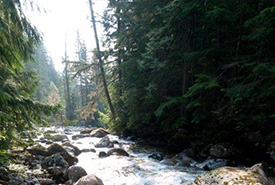
We are the only beings on Earth who can write the poetry of the natural world. (Photo by Bruce Kirkby)
I agree that effort is enough. Write about the world around you coming back to life. Or the life you’ll miss in winter. You can write for yourself, like I do, to hold on to what you love and to what you’ll lose. You can write it for other people, to share your unique perspective. Or you can make it an act of conservation of sorts. We are the only beings on Earth who can write the poetry of the natural world; maybe we owe it to the penless fields and moths to try.
The Conservation Internship Program is funded in part by the Government of Canada's Summer Work Experience program.

